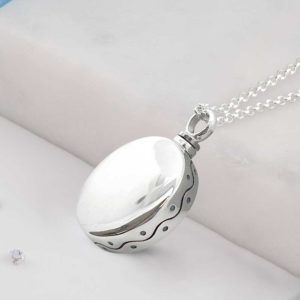Grief is probably the most complex and profound human emotional experience a person will encounter. It is a complicated process that can affect both our physical and mental health, impacting so much of our well-being.
Grief often brings an overwhelming sense of anger, sadness and confusion. But, sometimes with those emotions, there comes transformative potential. Grief also presents an opportunity for deep personal growth and healing.
This personal journey is not linear, or easy, it demands gentle and delicate navigation through so many emotions. One emotion that plays a particularly pivotal role is forgiveness. Moving beyond the initial anger and upset, toward a state of forgiveness, is an essential step in the grieving process.
Reaching this state of forgiveness allows mourners to relieve themselves of the heavy burdens of resentment and bitterness. This shift is important for so many reasons. It is an emotional release but it is also a chance to find peace and balance again.
In this article, we will look at the primary emotions we feel when faced with loss. We will also look at the complex role of forgiveness in the grieving process. Then, we will talk about the role of memorial ashes jewellery, which is a tangible symbol of remembrance and healing. These pieces are more than just ornaments. They are intimate symbols that physically represent the memory of a loved one.
The Complexity of Anger in Grief
Anger is a basic human emotion that is identified as a natural response to loss. Many psychologists, such as Paul Ekman, have studied the role of anger in the grieving process. From quiet resentment to explosive rage, anger can make grievers feel more powerful in the face of loss.
Many of us might prefer to feel angry when faced with loss. Sitting with feelings of frustration and rage can feel more comfortable than vulnerability and sadness. If you, or someone you care about, is feeling angry after death, know that this is a completely normal part of the grieving process.
The Role of Forgiveness in Healing
In the context of grief, the move to forgiveness is not about condoning what happened. It is about relieving yourself from the burden of anger and resentment.
Theories of emotion suggest that emotions are adaptive responses. So, forgiveness can be looked at as an adaptive response that can help healing. As we move to forgiveness, we begin to reframe the experience. We start to accept death as part of our life experience.
This reframing is a crucial stage in the grieving process. The benefits of forgiveness are well documented, from reduced depression and anxiety to improved physical and mental health. Acts of forgiveness, whether directed at yourself or others, can help you find peace following a death.
Understanding and Managing Your Anger
Managing your anger is a crucial step in the journey towards forgiveness. There is absolutely nothing wrong with feeling anger after a death. However, you should healthily express this anger. This might mean talking about the anger with family, friends or a therapist. Or, you might choose to physically channel this anger by taking up running or boxing for example.
Recognising the triggers of anger and understanding the emotions that lie beneath can be enlightening. When someone feels anger, it’s not just an emotional reaction. It is a complex process which involves past experiences, expectations and values.
It’s important to approach this feeling with compassion and curiosity, asking ourselves why we feel anger and what it might be trying to tell us about our needs or boundaries. Mental health professionals often look at anger as a signal, which can guide us to deeper introspection and understanding. It is essential to honour the feelings of anger, without letting it take over.
The Grieving Process and Emotional States
Grieving is a deeply personal experience, and there is no ‘right’ way to grieve. Each person experiences a range of emotional states, from intense sadness to numbness, and yes, anger.
These feelings are not linear. They don’t happen in a particular order. They come and go depending on so many different triggers. Recognising that this is perfectly natural can help you manage the grieving process.
Incorporating Paul Ekman’s Theories
Paul Ekman’s work on facial expressions and emotions can help us understand our emotional responses. Being aware of our facial expressions can help us understand what we are feeling and why. We can also use our facial expressions to trick our brains into feeling a certain way.
For example, usually, our facial expression follows the feeling. You see something that makes you happy, so you smile. However, the process can work in reverse too. Sitting and smiling, or even laughing, can slowly move you into a more positive emotional state.
Memorial Jewellery: Aiding in Emotional Healing
Memorial jewellery plays a unique role in the grieving process. These pieces are personal, tangible reminders of the person we lost. They can be a source of comfort, a way to feel connected to the loved one and a physical way to honour their memory.
Memorial jewellery is a subtle, yet powerful, act of remembrance. It provides a sense of closeness that can help ease the pain of absence. It can also be a catalyst when it comes to the journey toward forgiveness, reminding us of positive feelings such as love and belonging, rather than pain and loss. There are many tyes of memorial jewellery, from an urn necklace for ashes to ashes rings, there is something for everyone to remember there loved one perfectly.
Types of Emotional Responses and Finding Peace
All of us will have different types of emotional responses when it comes to grief. Some might feel basic emotions such as anger and resentment, whilst others will feel futility and hopelessness.
Finding peace when surrounded by so much turmoil is a gradual process. It involves acknowledging and expressing emotions, seeking support and finding meaning in the loss.
The Journey to Forgiveness
The journey to forgiveness is a deeply personal and individual process, varying significantly from person to person. It might involve deliberate acts of forgiveness, such as writing a letter of forgiveness (even if it’s never sent). Or, it may be more subtle, just a shift in perspective. This journey is not just about forgiving others, often we need to forgive ourselves too.
Forgiveness in the context of grief can also mean accepting the loss. Acknowledge the pain, and accept that the absence will always be a part of life, but don’t let it define you. Engaging in rituals such as creating memorial spaces or wearing memorial jewellery, can aid in this forgiveness process. These acts are a way to honour the loved one, whilst also acknowledging that you need to continue living life and finding joy.
Grief and the types of emotions it brings can challenge us in profound ways. However, within this struggle, there is an opportunity for personal growth and healing. Anger, a negative emotion that is a perfectly natural reaction to loss, can be a stepping stone toward forgiveness and peace.
By understanding our emotional responses, managing our anger and working on acts of forgiveness, we can move through grief toward a more positive place. Memorial jewellery, in its subtle but significant way, can be an important physical component in this process. It offers a tangible connection to the loved one. It is a symbol that represents their memory, to keep close at all times.
Healing is never about forgetting or leaving behind, it is about finding ways to accept and move forward.






